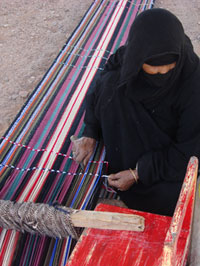Overview
 The healthy village programme is a joint community-based initiative between the Ministry of Health and WHO. The programme was created to support primary health care centres and village clinics within the community. Its aim is to improve the health, economic, social and environmental status of villages, and to develop and promote primary health care services. The programme focuses on a number of crucial issues, including: developing basic health care services, empowering women, development planning, improving environmental activities and developing small businesses. The programme also focuses on public participation in planning and implementing programme interventions.
The healthy village programme is a joint community-based initiative between the Ministry of Health and WHO. The programme was created to support primary health care centres and village clinics within the community. Its aim is to improve the health, economic, social and environmental status of villages, and to develop and promote primary health care services. The programme focuses on a number of crucial issues, including: developing basic health care services, empowering women, development planning, improving environmental activities and developing small businesses. The programme also focuses on public participation in planning and implementing programme interventions.
The programme was originally implemented in 1996 in two villages. Today, the programme covers 46 villages across the country (directly benefiting 71 674 individuals). It is based on the principle of voluntary participation within communities and villages, where people can self-determine their own basic needs. The programme is currently only implemented in villages that are considered disadvantaged in terms of social, health and economic services, and with populations between 800 and 2000 people. Overall, it is believed that programme interventions will not only improve the health of many village residents but also protect the environment and reduce pollution.
Healthy city and urban health programme
WHO and the Ministry of Health introduced the healthy city and urban health programme in 2009. This programme aimed to introduce a wide range of activities in the Aqaba governorate to improve, among other things, physical activities in parks and green areas, urban planning and environmental measures. In March 2011, Aqaba, as a healthy city, was included in the regional healthy city network. A number of activities were organized to mark this achievement.
Related links
Regional community-based initiatives programme


